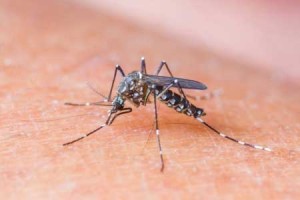You can protect yourself and your future family from the Zika virus
 Remember when the Zika virus was breaking news last year? Even though the virus isn’t making headlines like it did in 2016, Zika is still a concern for women who are pregnant or who are thinking of becoming pregnant. The Austin fertility specialists at Texas Fertility Center are here to explain what you need to know about the Zika virus and the birth defects that it can cause.
Remember when the Zika virus was breaking news last year? Even though the virus isn’t making headlines like it did in 2016, Zika is still a concern for women who are pregnant or who are thinking of becoming pregnant. The Austin fertility specialists at Texas Fertility Center are here to explain what you need to know about the Zika virus and the birth defects that it can cause.
Doctors are still learning about the Zika virus and its effects
Our Austin fertility specialists have been keeping up with the latest information about the Zika virus. When the Zika outbreak started last year, doctors and researchers worked around the clock to learn more about the insidious virus. From their efforts, we have learned several key pieces of information.
- Zika can be spread by infected mosquitoes or unprotected sex with a person who has contracted the virus.
- A woman who is pregnant can transmit the Zika virus to her baby. Babies who have the virus have an increased risk of being born with microcephaly, a birth defect that results in a small head and impaired brain development.
- There is no vaccine to prevent the virus and there is no medication to treat it.
Despite this knowledge, the medical community still doesn’t know if there’s a “safe time” in a woman’s pregnancy to be exposed to Zika. It’s also unknown how likely it is that a Zika infection will impact an unborn baby.
There are a few steps you can take to protect yourself and your baby from the virus
Our Austin fertility specialists believe in being proactive about all aspects of health, including Zika virus prevention. The following are recommendations for women who are pregnant right now or who are trying to get pregnant.
- Follow texaszika.org for up-to-date information about transmission in Texas. As of June 2017, there were 14 Zika cases in Texas; one in Bexar County and one in Brazos County.
- Avoid mosquito bites and practice safe sex to avoid virus transmission. This means using a condom every time – even during pregnancy – if you are at high risk for contracting Zika.
- The Centers for Disease Control and Prevention (CDC) has a chart that can help you decide if you should be tested for the virus.
- Consider freezing sperm in advance if your partner must travel to areas with known Zika outbreaks.
If you would like to learn more about how to protect yourself and your family from the Zika virus, please contact us today. Our team of reproductive endocrinologists helps patients have healthy and happy families.













Comments are closed.